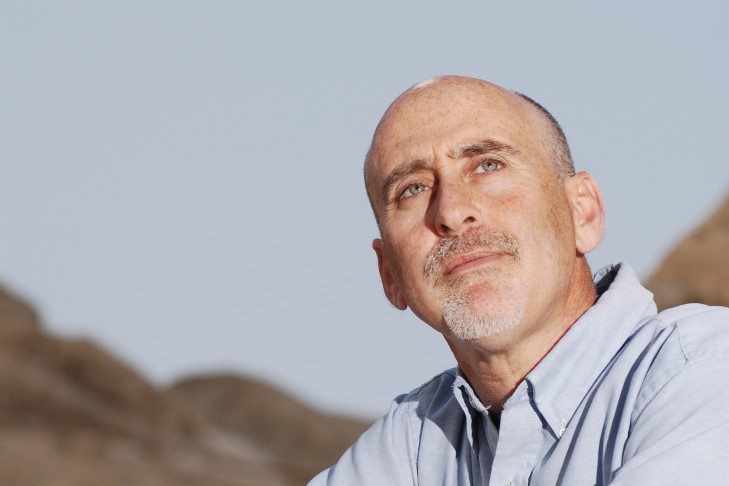Alon Tal’s love of nature is deeply rooted in memories of his North Carolina boyhood, as well as his time in the Zionist-oriented Young Judaea youth movement. In a recent telephone interview, Tal recalled, “I grew up among the wonderful forests and woods of North Carolina and its many pine trees.”
When Tal immigrated to Israel after college, it became quickly apparent to him that he wanted to address the acute environmental problems facing the Jewish state. In recent years, he has extended his expertise to writing and working on Israel’s growing overpopulation crisis. His latest book, published by Yale University Press, is “The Land Is Full: Addressing Overpopulation in Israel.” Issues raised in that work will be the subject of Tal’s talk at CJP’s Health Professions Annual Breakfast on Sunday, Dec. 4, where Dr. Dale S. Adler will also be honored with The Lewis H. Millender Community of Excellence Award.
Of his invitation to speak at CJP, Tal said, “I’m so grateful to CJP to be able to talk openly and honestly about an issue critical to Israel’s future and the future of the Jewish people.” He added: “When Israel was created it was sparsely populated. One of the axioms of Zionism was to increase the population rapidly. [Consequently] Israel’s population has grown 1,000 percent since the country was established, and the population will double over the next 30 years.” He asserted that it’s time to change the situation. According to Tal, Israel has emerged as one of the most crowded nations in the world. Contrary to persistent misinformation, its Jewish population is growing exponentially, while Arab births have leveled off over the past 15 years.
Along with Israel’s increase in population comes problems related to poverty and public-health issues. “We need to reach a point where Israel is no longer growing demographically, otherwise we’ll destroy its ecological and health systems,” said Tal. “Israel’s dogmatic obsessive immigration was appropriate for its day, but to love Israel [now] is to embrace a sustainable ideology, which means stability.”
Tal’s own love for Israel was nurtured in his Zionist household and through his involvement in Young Judaea. “If I had to write a book [about Young Judaea],” he quipped, “it would be a version of ‘All I Really Need to Know I Learned in Kindergarten,’ only I would substitute ‘kindergarten’ for ‘Young Judaea,’ where I learned to be confident and open-minded. It was idealism mixed with activism.”
After completing degrees in political science and economics at the University of North Carolina, Tal went on to earn a law degree from Hebrew University and master’s and doctoral degrees in environmental policy from the Harvard School of Public Health. In Israel, Tal settled in the Young Judaea-affiliated Kibbutz Ketura in the southern Negev. In 1990 he became the founding director of Adam Teva V’din, the Israel Union for Environmental Defense.
In 1996 Tal founded the Arava Institute for Environmental Studies, which is located on the grounds of Kibbutz Ketura. The institute brings together Israeli, Jordanian and Palestinian students to engage in interdisciplinary graduate studies with internationally renowned environmentalists.
Tal explained that establishing the Arava Institute “was an effort to do something very constructive post-Oslo. Unfortunately, most of the social ventures that emerged during that time did not survive the subsequent paralysis of the peace process. Maybe because of its geographic isolation or maybe because of the dedication of its students, the Arava Institute continues to be a beacon of hope. Most people in the region would like to cooperate together and the environment is a natural way to do it.”
In 2005 Tal won the Charles Bronfman Prize, an annual accolade given to young Jewish humanitarians. For Tal, it was an opportunity to partner with the Jewish National Fund to create the Tal Fund, a grassroots ecological initiative in Israel. “I was grateful for having this platform to provide funding for organizations who may not have had a fundraising apparatus, but had righteousness on their side,” he said. “A lot of donors in Boston have been very helpful to us [in this endeavor].”
With past academic appointments at Stanford University’s Center for Conservation Biology, Harvard University and Ben-Gurion University of the Negev, Tal is currently affiliated with the public-policy department at Tel Aviv University. He noted, however, that his time as a student at Harvard’s School of Public Health provided him with new skill sets, as well as a strong background in environmental health. He said: “The research [happening] in the Boston medical area in environmental health is cutting edge. This place is a mecca. Coming back to Boston to talk to such an esteemed group of professionals is closing the circle.”



